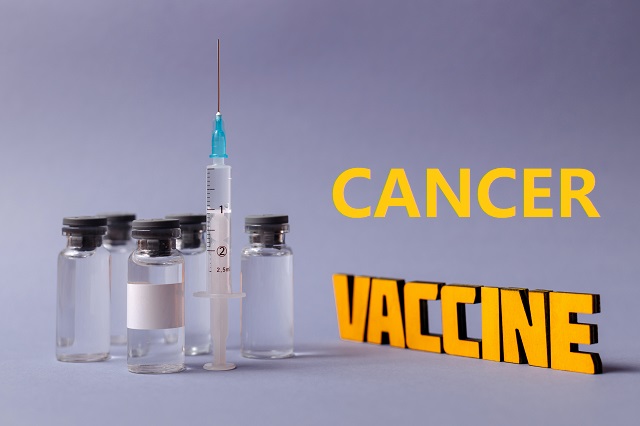Cancer vaccine expected to be developed successfully within three years
- Normal Liver Cells Found to Promote Cancer Metastasis to the Liver
- Nearly 80% Complete Remission: Breakthrough in ADC Anti-Tumor Treatment
- Vaccination Against Common Diseases May Prevent Dementia!
- New Alzheimer’s Disease (AD) Diagnosis and Staging Criteria
- Breakthrough in Alzheimer’s Disease: New Nasal Spray Halts Cognitive Decline by Targeting Toxic Protein
- Can the Tap Water at the Paris Olympics be Drunk Directly?
Russian scientists reveal: Cancer vaccine expected to be developed successfully within three years
- Should China be held legally responsible for the US’s $18 trillion COVID losses?
- CT Radiation Exposure Linked to Blood Cancer in Children and Adolescents
- FDA has mandated a top-level black box warning for all marketed CAR-T therapies
- Can people with high blood pressure eat peanuts?
- What is the difference between dopamine and dobutamine?
- How long can the patient live after heart stent surgery?
Russian scientists reveal: Cancer vaccine expected to be developed successfully within three years
A senior official from the Federal Medical Biological Agency (FMBA) of the Russian Federation revealed on Thursday local time that Russian medical researchers could introduce a cancer vaccine within three years if there is enough funding and policy support.
The official, Vasily Lazarev, who is also a scientist, claimed, “With financial support, I believe that within two to three years, existing organizations are fully capable of transforming cancer vaccines into practical clinical applications.”
However, Lazarev did not specify which type of cancer the vaccine, which could soon be available, specifically targets, nor did he specify how the vaccine works.
A cancer vaccine is a biological preparation aimed at preventing or treating cancer. Unlike traditional vaccines that prevent infectious diseases by activating the immune system, cancer vaccines are designed to activate the immune system to identify and eliminate tumor cells.
Currently, research on cancer vaccines is at different stages, with some already approved for the treatment of specific types of cancer, while others are still in clinical trials. Last year, the UK government signed an agreement with the German biotechnology company BioNTech to initiate clinical trials for “personalized cancer treatment.” Danish biotechnology company Evaxion announced in January that it would develop customized cancer vaccines targeting novel tumor antigens. Moderna and Merck are also developing experimental cancer vaccines.
These vaccines may use various mechanisms, including using tumor-associated antigens to activate the immune system, or using viral vectors to deliver genes to produce antigens and activate immune responses.
However, research and development of new tumor antigens have long been limited by legal restrictions, until recently when Russian regulatory authorities relaxed policies.
Lazarev pointed out that with the easing of regulatory pressures, private investors in Russia will also be attracted to this technology.
Furthermore, he did not mention any medical or technical challenges, but emphasized the legal restrictions faced in the development of cancer vaccines.
It is important to note that although cancer vaccines theoretically have enormous potential, they still face challenges in clinical applications. Cancer is a very complex disease, with each type of cancer having its unique characteristics and challenges, so developing effective cancer vaccines requires long-term research and clinical trials.
Lazarev said, “I don’t know how fast regulations will be established, it may take a year to resolve all regulatory issues. However, we have the tools, we have the production equipment, and I don’t think it’s difficult to organize.”
However, Lazarev emphasized that while development and production are feasible, the price will certainly not be cheap, as only specialized cancer research institutions, such as the Blokhin Cancer Center in Moscow or the FMBA’s Brain and Neurotechnology Center, can meet production requirements.
Just last month, Russian President Putin also stated that Russia is about to develop a cancer vaccine, which is expected to be used as a personal treatment method soon.
Putin said, “We are very close to developing a cancer vaccine and a new generation of immune-modulating drugs, and I hope they will soon be effectively used in individual treatment.”

Russian scientists reveal: Cancer vaccine expected to be developed successfully within three years
(source:internet, reference only)
Disclaimer of medicaltrend.org
Important Note: The information provided is for informational purposes only and should not be considered as medical advice.



